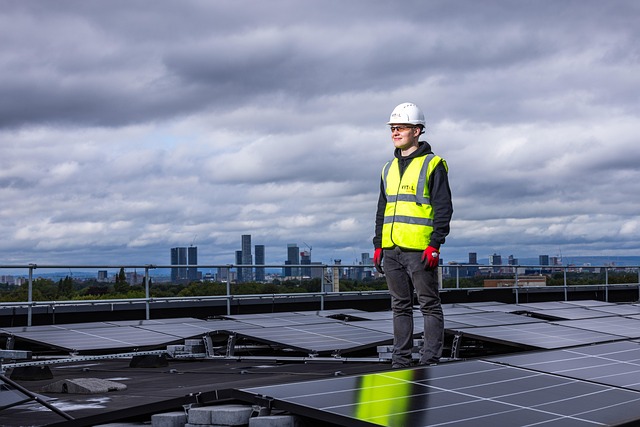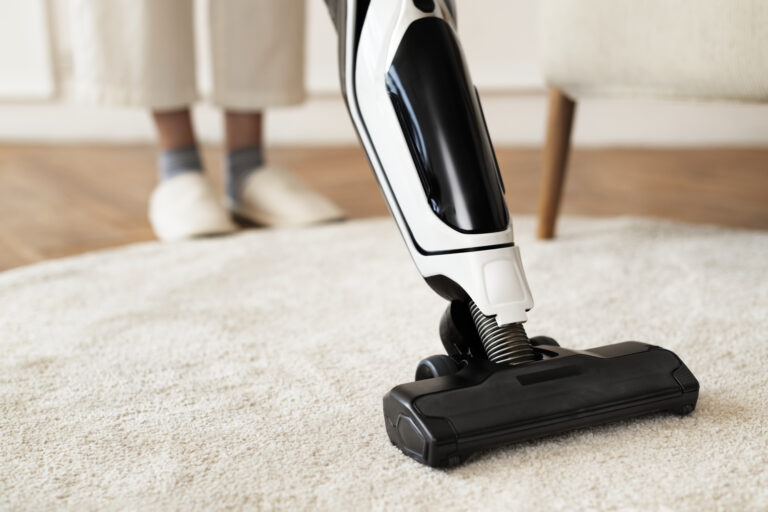What Can a Smart Home Do For You? Exploring the Possibilities
In an increasingly interconnected world, smart home technology has emerged as a transformative force, revolutionizing the way we interact with our living spaces. By seamlessly integrating various devices and systems, smart homes offer a plethora of benefits that enhance convenience, comfort, security, and energy efficiency. This article delves into the numerous advantages of smart home technology, exploring how it is reshaping modern living.

What are the Benefits of Smart Home Technology?
In an increasingly interconnected world, smart home technology has emerged as a transformative force, revolutionizing the way we interact with our living spaces. By seamlessly integrating various devices and systems, smart homes offer a plethora of benefits that enhance convenience, comfort, security, and energy efficiency. This article delves into the numerous advantages of smart home technology, exploring how it is reshaping modern living.
Enhanced Convenience and Automation
One of the most significant benefits of smart home technology is the unparalleled convenience it offers. With a centralized control system, homeowners can manage various aspects of their homes remotely through smartphones, tablets, or voice assistants. Imagine adjusting the thermostat, turning on lights, or locking doors from anywhere in the world. Smart home devices can also be programmed to automate tasks based on schedules, preferences, or real-time conditions. For instance, lights can automatically turn on at sunset, and the thermostat can adjust the temperature before you arrive home. This level of automation streamlines daily routines, freeing up time and energy for more important things.
What are the Benefits of Smart Home Technology?
In an increasingly interconnected world, smart home technology has emerged as a transformative force, revolutionizing the way we interact with our living spaces. By seamlessly integrating various devices and systems, smart homes offer a plethora of benefits that enhance convenience, comfort, security, and energy efficiency. This article delves into the numerous advantages of smart home technology, exploring how it is reshaping modern living.
Enhanced Convenience and Automation
One of the most significant benefits of smart home technology is the unparalleled convenience it offers. With a centralized control system, homeowners can manage various aspects of their homes remotely through smartphones, tablets, or voice assistants. Imagine adjusting the thermostat, turning on lights, or locking doors from anywhere in the world. Smart home devices can also be programmed to automate tasks based on schedules, preferences, or real-time conditions. For instance, lights can automatically turn on at sunset, and the thermostat can adjust the temperature before you arrive home. This level of automation streamlines daily routines, freeing up time and energy for more important things.
Enhanced Security and Safety
Smart home technology significantly enhances home security and safety. Smart doorbells with built-in cameras allow homeowners to see and interact with visitors remotely, deterring potential intruders. Smart locks provide keyless entry and can be programmed to grant access to specific individuals or for limited periods. Smart security systems can detect intrusions, trigger alarms, and notify homeowners or security services of potential threats. Smart smoke detectors and carbon monoxide sensors can alert homeowners of emergencies, even when they are away from home. By providing real-time monitoring and alerts, smart home technology empowers homeowners to take proactive measures to protect their families and properties
Improved Energy Efficiency and Cost Savings
Smart home technology plays a crucial role in promoting energy efficiency and reducing utility bills. Smart thermostats learn your temperature preferences and automatically adjust settings to optimize energy consumption. Smart lighting systems can be programmed to turn off lights in unoccupied rooms or dim them during daylight hours. Smart appliances can be set to operate during off-peak hours when electricity rates are lower. By monitoring energy usage through smart home dashboards, homeowners can identify areas where they can further reduce consumption. These features not only save money but also contribute to a more sustainable lifestyle.
Let’s expand on the benefits of smart home technology, exploring some more nuanced aspects and emerging trends:
Beyond the Basics: Deeper Dives into Smart Home Advantages
While convenience, security, and energy efficiency are the cornerstones of smart home benefits, there are several other compelling advantages worth exploring:
-
Entertainment and Media Integration: Smart homes seamlessly integrate entertainment systems. Imagine voice-controlled music streaming throughout the house, synchronized lighting that dims automatically when a movie starts, or personalized playlists that follow you from room to room. Smart TVs, connected speakers, and media servers create a unified entertainment experience, easily managed through a central interface or voice commands. This extends beyond just entertainment; smart displays can become central hubs for family communication, displaying calendars, reminders, and even video calls.
-
Personalized Health and Wellness: The intersection of smart home technology and health is rapidly expanding. Smart lighting can be programmed to mimic natural sunlight, improving mood and sleep patterns. Smart thermostats can create optimal sleeping environments by adjusting temperature and humidity throughout the night. Wearable devices can integrate with smart home systems to trigger actions based on health data, such as adjusting the thermostat if you’re feeling cold or automatically dimming the lights if you’re experiencing a migraine. Beyond personal comfort, smart home technology can play a critical role in remote patient monitoring and elderly care, providing valuable data to healthcare providers and family members.
-
Enhanced Home Management: Smart home technology simplifies home maintenance and management. Smart leak detectors can identify plumbing issues early, preventing costly water damage. Smart sprinkler systems can adjust watering schedules based on weather forecasts, conserving water and maintaining a healthy lawn. Smart appliances can alert you when they need maintenance or if there’s a problem. By automating routine tasks and providing real-time insights into home systems, smart home technology reduces the burden of homeownership.
-
Increased Customization and Control: Smart home systems offer unparalleled levels of customization. You can create personalized routines and schedules for virtually any aspect of your home, from lighting and temperature to entertainment and security. Voice assistants allow for natural language control, making it easy to interact with your home without having to fumble with apps or remotes. The ability to tailor your home environment to your specific needs and preferences enhances comfort, convenience, and overall quality of life.
-
Data-Driven Insights and Optimization: Smart home devices generate valuable data about energy consumption, appliance usage, and other aspects of home operation. This data can be used to identify areas for improvement and optimize home performance. For example, you can analyze energy usage patterns to identify energy hogs and make adjustments to reduce your bills. You can also use data to personalize your home environment, such as automatically adjusting the lighting based on your mood or activity levels.
-
Integration with Other Smart Systems: The true power of smart home technology is realized when it integrates with other smart systems, such as smart cars, smart grids, and smart cities. For example, your smart car could communicate with your smart home to adjust the thermostat and lighting based on your arrival time. Smart home energy management systems could integrate with smart grids to optimize energy consumption and reduce reliance on fossil fuels. As smart city initiatives continue to develop, the integration of smart home technology with broader urban systems will create even more opportunities for efficiency, sustainability, and convenience.
Emerging Trends in Smart Home Technology
The smart home landscape is constantly evolving, with new trends emerging that promise to further enhance the benefits of connected living:
-
Artificial Intelligence (AI) and Machine Learning: AI and machine learning are playing an increasingly important role in smart home technology. Smart devices are becoming more intelligent, learning user preferences and anticipating needs. AI-powered systems can automate complex tasks, optimize energy usage, and provide personalized recommendations.
-
Edge Computing: Edge computing is bringing processing power closer to smart devices, enabling faster response times and enhanced privacy. By processing data locally, smart devices can make decisions more quickly and reduce reliance on cloud connectivity.
-
Matter and Other Interoperability Standards: The development of interoperability standards like Matter is making it easier for smart devices from different manufacturers to work together seamlessly. This eliminates the frustration of compatibility issues and creates a more unified smart home ecosystem.
-
Increased Focus on Privacy and Security: As smart homes become more integrated into our lives, concerns about privacy and security are growing. Manufacturers are responding by implementing stronger security measures and providing users with more control over their data.
-
The Rise of the “Ambient Home”: The ultimate goal of smart home technology is to create an “ambient home” that anticipates our needs and seamlessly integrates into our lives. This involves creating a more intuitive and responsive environment that enhances our comfort, productivity, and well-being.
This is for informational purposes only. For medical advice or diagnosis, consult a professional.
Here are some additional benefits of smart home technology:
- Improved Air Quality: Smart air purifiers and ventilation systems can monitor and adjust air quality levels, removing pollutants and allergens to create a healthier indoor environment.
- Smart Gardening: Smart sprinkler systems and sensors can automate watering schedules based on weather conditions and soil moisture, promoting healthy plant growth and conserving water.
- Pet Care: Smart pet feeders, cameras, and activity trackers can help you monitor and care for your pets remotely, ensuring they are fed, safe, and entertained.
- Home Entertainment: Smart home systems can integrate with entertainment devices to create immersive experiences, such as synchronized lighting with music or movies.
- Accessibility: Smart home technology can make homes more accessible for people with disabilities or mobility limitations, such as voice-controlled devices and automated door openers.
- Aging in Place: Smart home technology can support aging in place by providing features such as medication reminders, fall detection, and remote monitoring for elderly residents.
- Increased Home Value: Homes equipped with smart home technology are becoming increasingly desirable to buyers, potentially increasing the value of your property.
- Energy Savings: Smart home technology can help you save money on energy bills by optimizing energy consumption and reducing waste.
- Convenience: Smart home technology can automate tasks and simplify daily routines, freeing up time and energy for other activities.
- Peace of Mind: Smart home security systems and monitoring features can provide peace of mind by alerting you to potential problems and allowing you to monitor your home remotely.
As smart home technology continues to evolve, we can expect even more innovative features and benefits to emerge, further enhancing the way we live and interact with our homes.






